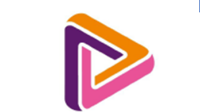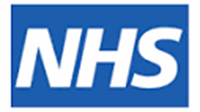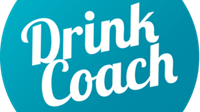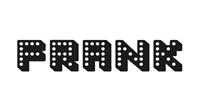Take the DrinkCoach Alcohol Test to work out how risky your drinking is, access advice and support online and find out where you can get support locally.
On average, it should take only two minutes to complete.
Visit the West Sussex Wellbeing website for more tools and tips on what to do if you’re worried about alcohol.
Drug and alcohol support
- Home - Connect to Support
- How to live well with a health condition or disability
- Drug and alcohol support
People develop problems with drugs or alcohol for a variety of reasons. This can cause difficulties for individuals, their health, their families, and at work, school, or college.
Alcohol
Most of the time, people find drinking alcohol pleasurable. However, the amount that we drink sometimes increases without us noticing and it can start to impact our own wellbeing and the people around us.
No one can say that drinking alcohol is safe, but by drinking within the recommended guidelines, you can lower the risk of harming your health. It is recommended not to drink more than 14 units a week, spread over three or more days, and with a few days off in between.
You can work out how much you are really drinking by taking the free alcohol test below.
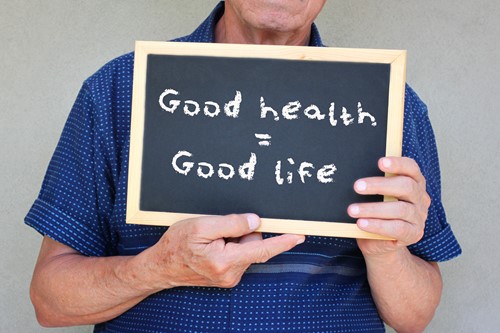
Overtime, excessive drinking can increase your risk of many health conditions, including:
- High blood pressure, heart disease, stroke, liver disease & digestive problems
- Cancer, including breast and mouth cancer
- Learning & memory problems, including dementia
- Mental health problems, including depression & anxiety
If you are concerned about your own drinking or about a friend or family member, support is available to help you cut down, give up or support someone else.
Drug use
Using drugs can have a harmful and unpredictable impact on many aspects of life, including mental health, physical health, mood, and behaviour.
Not all drugs are the same, and different drugs have different risks of harm associated with them. The risk of harm relates to different types of illegal drugs, new psychoactive substances, and misuse of prescribed medications. This risk of harm from drugs increases in relation to quantity and frequency, and when mixing the use of different substances.
If you are concerned about your use of drugs, or about a friend or family member, support is available to help you cut down, give up, or to support someone else.
When people think about drugs, they tend to think about things like Heroin, Cocaine and Cannabis. There are many types of drugs that can cause people problems, however. They tend to be grouped together as follows:
Illicit substances
These are the substances that people most commonly think of when they hear the term ‘drugs’. Visit the Talk to Frank website for more information about illegal drugs.
These are the substances that people most commonly think of when they hear the term ‘drugs’. Visit the Talk to Frank website for more information about illegal drugs.
Prescription medication
This can relate to a whole range of drugs, only available on prescription. Sometimes people take more than they should or use them without a prescription. There are many prescription drugs that can be misused; the most common of these are:
Opiates: often prescribed to treat pain e.g. codeine.
Depressants: used to treat anxiety and sleep disorders e.g. benzodiazepines such as diazepam and temazepam.
Antidepressants: Used to relieve the symptoms of depression, such as citalopram and mirtazapine.
Stimulants: often used to treat ADHD, such as dexamphetamine.
Antihistamines.
Over-the-counter drugs
These are available to purchase, without prescription, but over-use can cause physical damage to the digestive system, liver and kidneys and people can become dependent.
Performance and Image Enhancing Drugs
People use a whole range of drugs which promise to deliver a range of results such as:
-
- Muscle gain
- Weight loss
- Skin lightening
- Hair regrowth
- Improved sexual performance
- Increased concentration
New Psychoactive Substances (NPS )
NPS (formerly known as ‘Legal Highs’) are chemicals that work in a similar way to illegal drugs and can be very dangerous as their contents and effects are most often unknown. Visit the Talk to Frank website for more information about NPS.
For more information about all the types of drugs listed above, visit the Talk To Frank website.
Access support from DAWN: the Drug and Alcohol Wellbeing Network
DAWN, the West Sussex Drug and Alcohol Wellbeing Network, provides support to people of any age, who are looking to reduce or stop their drinking or use of drugs.
The service can offer free and confidential professional support, ranging from information and advice, counselling, detox and rehab. While contacting a drug or alcohol support service might feel daunting at first, you don’t need to worry. Staff will not judge you and you can access as much or as little help as you want at times to suit you. It helps to have a note of any medication you are taking and who your GP is the first time you visit the service.
Young people aged up to 24 can contact the service via:
Text: 07779339954 (someone will ring you back).
Phone: First Step Team - 0330 128 1113
Email: wsypsms@cgl.org.uk (Under 25's referral email)
Adults aged 25 and over can contact the service via:
Phone: First Step Team - 0330 128 1113
Email: WestSussex.contact@cgl.org.uk (Adult referral email)
Alcohol
DrinkCoach is a website that allows you to anonymously find out if you are drinking at harmful levels and to get advice and information about alcohol, and support to cut down.
DrinkCoach online coaching is available for anyone wanting to reduce their drinking. If you are tired of hangovers, costs and the impact on your health, our alcohol specialists can help you identify and achieve your drinking goals.
DrinkCoach online coaching is professional, convenient and confidential. You can access the service anywhere and at anytime it suits you: weekdays, evenings and weekends. All you need is a Skype connection.
If you live and/or work in West Sussex click on the following link and enter the promo code WSWELL to book your free sessions:
Book an appointment
For more information on DrinkCoach download the DrinkCoach information leaflet or visit drinkcoach.org.uk
To explore a healthier, happier relationship with alcohol, take a look at this Mindful Drinking leaflet
Not sure if you are drinking at risky levels? Take the two minute Alcohol Test to find out.
Soberistas is an online community for anyone who wants help to stop drinking.
Club Soda is a social network and provides tools to help people to change their drinking, whether that be to cut down, stop for a bit, quit or stick.
The Sober School is a website for women trying to stop drinking or take a break from booze. There are blogs, hints and tips and courses to help people cut down or stop drinking.
The West Sussex Wellbeing website features alcohol information and local support options. Your local wellbeing hub can offer face to face support for being drinking a bit too much, a little too often.
Alcoholics Anonymous run groups for alcohol users with regular meetings across the country. Visit their website, call 0845 769 7555 10am to 10pm or email to find out your nearest group.
SMART Recovery (SMART) is a science-based programme to help people manage their recovery from any type of addictive behaviour. This includes addictive behaviour with substances such as alcohol, nicotine or drugs, or compulsive behaviours such as gambling, sex, eating, shopping, self-harming and so on. SMART stands for ‘Self Management And Recovery Training’.
Drinkline offers confidential advice and information to people affected by their own or someone else’s drinking, including information about where to get support locally. Call 0300 123 1110 on Monday to Friday between 9am and 8pm, and at weekends between 11am and 4pm.
The Samaritans provide confidential emotional support to any person who is suicidal or despairing. Call 08457 90 90 90 for free, confidential advice 24 hours a day, 365 days a year, email them, or write to:
FREEPOST
SAMARITANS LETTER
Drugs
FRANK helps you to find out everything you might want to know about drugs (and some stuff you don’t). For friendly, confidential advice, Talk to FRANK
Alcohol
DrinkCoach is an app for Android and iOS devices that helps you to track and change your drinking, it includes: unit, calorie and cost tracker, goal setting, mindfulness videos, reminders and event diary.
Drinkaware provides alcohol information, advice, and tips.
Change for Life offers unit information, and tips on how to cut down.
NHS Choices provides a range of information and resources to help you reduce your drinking, including an alcohol service finder.
Alcohol Change is the national agency on alcohol misuse campaigning for effective alcohol policy and improves services for people whose lives are affected by alcohol by alcohol-related problems.
British Liver Trust is the UK's leading charity promoting education and research around liver health. Their website contains lots of useful information
Drugs
FRANK helps you to find out everything you might want to know about drugs (and some stuff you don’t). For friendly, confidential advice, Talk to FRANK
OK Rehab West Sussex helps you to find a suitable rehabilitation centre and you will also find information about drug and alcohol addiction.
Carers Support West Sussex
Are you affected by someone else's drinking or drug use?
If you’re a carer and you are affected by the drink and drug use of the person you care for, Carers Support West Sussex provide a confidential service providing information, advice and support. They offer:
- information about drugs and alcohol
- local support groups
- a quarterly newsletter.
For more information, please contact Carers Support West Sussex.
Phone: 0300 028 8888.
In this section
- Introduction
- Physical disability
- Sensory impairment
- Special educational needs and disability (SEND)
- Transition to adulthood
- Learning disability
- Autism
- Training and employment
- Advocacy
- Dementia - support at a glance
- Dementia - symptoms and diagnosis
- Living well with dementia
- Drug and alcohol support
- Mental health








